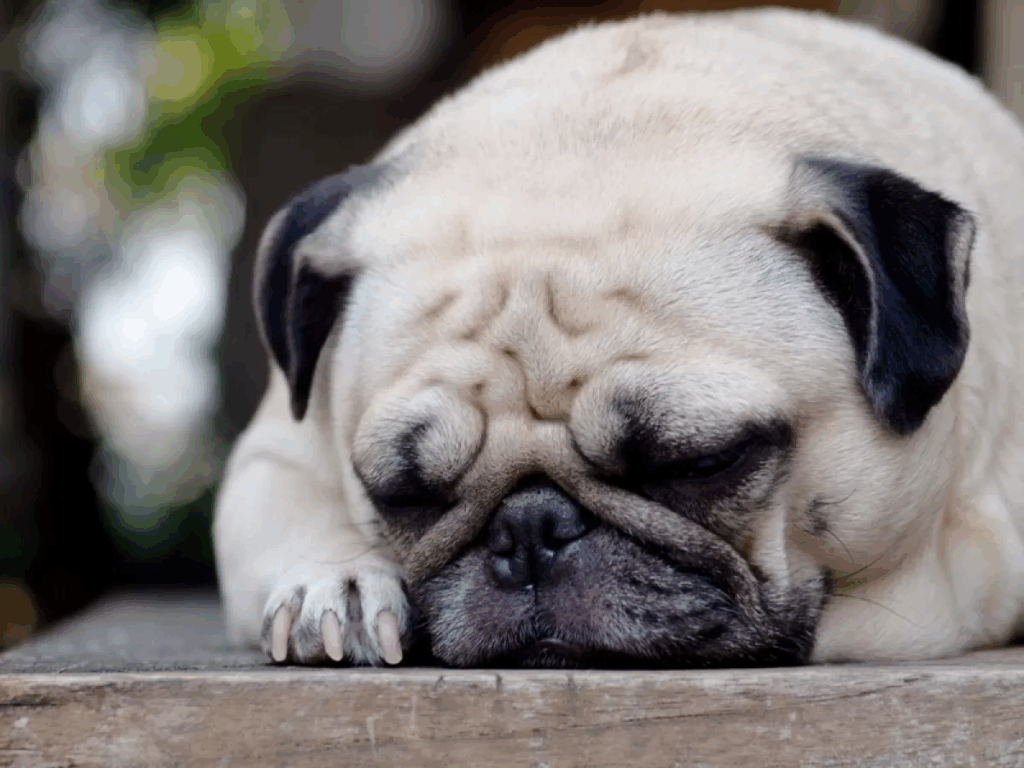Small dogs with big personalities are often the stars of our homes, filling our lives with joy and unconditional love. However, these pint-sized pups are prone to specific health issues that are not as common in larger breeds. This comprehensive discussion titled “Small Dog, Big Health: Addressing Common Health Issues in Toy and Small Breed Canines” is here to enlighten you about the various health concerns in small breed dogs and the potential strategies to manage them.

Firstly, the spotlight will shine on the most common health issues in small breed dogs, ranging from dental disease to orthopedic issues. You’ll also get an in-depth understanding of the causes, symptoms, and treatments for these health problems. Not just that, but you’ll learn how to identify the warning signs and preventative measures you can take to keep your fur-baby healthy.
Furthermore, this post will also delve into the importance of a balanced diet and regular exercise in promoting the health of toy and small breed canines. With expert opinions and vet-approved advice, you’ll find a wealth of information to help you provide the best possible care for your small dog. So whether you’re a seasoned small dog owner or just welcoming a tiny pup into your life, stick around for some invaluable insights. 🐾🐾
Nutritional Considerations for Lifelong Health
Nutrition plays a pivotal role in managing and preventing many of the health concerns faced by small breed dogs. These dogs burn calories faster due to their elevated metabolism, making it vital to provide nutrient-dense meals that meet their specific energy requirements. Smaller breeds also tend to have smaller stomachs, so their meals must be balanced and energy-efficient.
Veterinarians often recommend feeding small dogs two to four times daily to prevent dips in blood sugar levels, especially for breeds prone to hypoglycemia. Additionally, food formulated for small breeds often features smaller kibble sizes, which can make chewing easier and promote better dental hygiene.
Some key components to include in a small dog’s diet are:
- High-quality animal proteins for muscle maintenance
- Omega-3 and Omega-6 fatty acids for skin and coat health
- Calcium and phosphorus for bone support
- Antioxidants for immune system strength
- Prebiotics and probiotics for digestive health
The Importance of Hydration
Hydration is often overlooked when discussing small dog health, but it is essential. Dehydration can exacerbate existing conditions like kidney disease and urinary tract infections, which are not uncommon in older small breed dogs. Owners should ensure fresh water is always accessible, and during hot weather or periods of illness, hydration needs may increase.
Some pet owners supplement their dog’s diet with water-rich foods like cucumbers, watermelon (in moderation), or wet dog food. Monitoring water intake is especially crucial for dogs taking medications that may affect kidney function or increase urination.
Skin and Coat Health in Small Breeds
Many small breed dogs, particularly those with long hair such as the Maltese or Shih Tzu, require regular grooming to prevent skin issues. Their delicate skin can be prone to dryness, allergic reactions, or infestations like fleas or mites. Some breeds also suffer from hereditary conditions like seborrhea, which causes flaky or oily skin.
Maintaining skin and coat health involves:
- Regular bathing with breed-appropriate shampoos
- Brushing to distribute natural oils and prevent matting
- Nutrition that includes fatty acids like DHA and EPA
- Checking for signs of hot spots, rashes, or parasites
Owners should also be cautious with household products and outdoor chemicals that may irritate their dog’s skin. A hypoallergenic environment can significantly reduce flare-ups in sensitive breeds.
Respiratory Health in Brachycephalic Breeds
Breeds like the French Bulldog, Pug, and Boston Terrier are characterized by their brachycephalic (flat-faced) skulls. While adorable, these features often come with respiratory challenges that can impact their quality of life. Conditions like Brachycephalic Obstructive Airway Syndrome (BOAS) can cause snoring, wheezing, and even fainting during exercise or in hot weather.

To support respiratory health:
- Limit physical exertion, especially in heat or humidity
- Avoid using collars that may put pressure on the trachea
- Schedule regular vet checkups to monitor breathing and oxygen levels
- Maintain a healthy weight to reduce respiratory effort
In severe cases, surgical intervention may be necessary to widen the dog’s airways and improve airflow.
Behavioral and Mental Stimulation
Despite their small stature, many small breed dogs are highly intelligent and energetic. Without proper mental and physical stimulation, these dogs may develop behavioral problems such as excessive barking, chewing, or anxiety. This is particularly common in breeds like the Chihuahua and the Miniature Schnauzer.
Enrichment strategies include:
- Interactive toys and puzzles
- Short but frequent training sessions
- Socialization with other dogs and people
- Designated “jobs” like agility or obedience tasks
Mental health in small dogs is just as important as physical well-being. Ensuring daily interaction, affection, and mental challenges can prevent the development of negative behaviors and promote a harmonious household.
The Role of Grooming in Preventive Health
Grooming does more than just keep your dog looking neat; it plays a crucial role in early disease detection and overall hygiene. Regular grooming can help identify issues like lumps, parasites, skin infections, and ear problems before they become serious.
Essential grooming routines for small breed dogs include:
- Nail trimming every 2–4 weeks to prevent discomfort or posture issues
- Ear cleaning to reduce risk of infections, especially in floppy-eared breeds
- Brushing and coat maintenance tailored to breed and coat type
- Anal gland expression if recommended by a vet
A grooming schedule tailored to your dog’s breed can significantly contribute to their health, comfort, and cleanliness.
Eye Health Concerns in Small Breeds
Small dogs are particularly prone to eye problems, especially toy breeds with prominent eyes such as the Shih Tzu, Pekingese, and Chihuahua. Issues such as dry eye, cataracts, and corneal ulcers are common and can affect quality of life if not treated promptly.
Preventive eye care includes:
- Gently cleaning around the eyes to remove debris and tear stains
- Monitoring for excessive tearing, redness, or cloudiness
- Using vet-recommended eye drops if necessary
- Protecting eyes during grooming or when outdoors in windy or dusty environments
Regular vet visits should include an ophthalmic examination, especially as the dog ages.
The Impact of Aging on Small Breed Health
As small breed dogs grow older, they may experience age-related health concerns such as arthritis, cognitive decline, and decreased organ function. Thanks to their longer lifespan, these dogs often live well into their teens, requiring long-term health planning.
Support for senior dogs may involve:
- Switching to a senior-formulated diet
- Adjusting exercise routines to accommodate joint stiffness
- Adding supplements like glucosamine and chondroitin
- Increasing vet visit frequency to monitor organ function and detect illness early
Comfortable bedding, ramps to avoid jumping, and a predictable routine can improve the daily life of an aging small dog.
Nutritional Needs of Small Breed Dogs
Small breed dogs have unique nutritional needs. Their higher metabolic rate means they require more calories per pound of body weight compared to larger breeds.
Creating a Balanced Diet
- Ensure the diet is rich in high-quality proteins for muscle development.
- Include sufficient amounts of carbohydrates for energy.
- Include healthy fats for skin and coat health.
- Small breed dogs often prefer smaller kibble sizes.
- Ensure the diet contains all necessary vitamins and minerals.
Recognizing the Risks of Obesity in Small Dogs
Obesity is not simply a cosmetic issue for small breed dogs; it poses a serious threat to their overall health and quality of life. Excess weight places unnecessary stress on their joints, exacerbating conditions like arthritis and increasing the risk of orthopedic injuries such as ligament tears. Furthermore, overweight dogs are more likely to develop chronic diseases, including diabetes mellitus, respiratory problems, hypertension, and certain forms of cancer.
Unlike larger dogs, the additional weight in small breeds can represent a significant percentage of their body mass, leading to a faster progression of health issues. For instance, just a couple of extra pounds on a dog weighing 10 pounds is equivalent to a human carrying an extra 20-30 pounds.
Implementing Effective Weight Management Strategies
Managing a small dog’s weight requires a multipronged approach focused on diet, exercise, and lifestyle adjustments. First, pet owners should work with their veterinarian to determine an ideal target weight and establish an appropriate daily caloric intake. Prescription weight management diets may be recommended for severely overweight dogs.
Key weight management strategies include:
- Portion Control: Carefully measuring your dog’s food using a kitchen scale or a standard measuring cup ensures accuracy. Feeding based on weight recommendations rather than free-feeding is vital.
- Low-Calorie Treats: Treats should not exceed 10% of a dog’s daily caloric intake. Opt for low-calorie treats like carrot sticks, green beans, or specially formulated diet dog treats.
- Scheduled Meals: Rather than leaving food out all day, stick to structured meal times to regulate your dog’s metabolism and appetite.
- Regular Weigh-ins: Weighing your dog every month helps track progress and allows for timely adjustments in their diet or exercise regimen.
Creating an Exercise Plan for Small Breed Dogs
Exercise is essential for maintaining a healthy weight and promoting cardiovascular fitness. However, the exercise needs of small breed dogs differ from those of larger breeds. They often benefit from multiple short walks and play sessions throughout the day rather than one long, strenuous outing.
Exercise options for small breed dogs include:
- Daily Walks: Aim for two to three brisk walks of 15-30 minutes each day.
- Interactive Play: Activities like fetch, tug-of-war, and chase games keep dogs active and mentally stimulated.
- Agility Training: Small breeds often excel in agility courses, which provide physical exercise and mental engagement.
- Indoor Activities: For days when outdoor activities are not possible, games like hide and seek or using interactive toys can help expend energy.
Owners should ensure the exercise routine is appropriate for their dog’s age, breed, and any existing medical conditions. Always start slowly and build up endurance over time.
The Role of Mental Stimulation in Preventive Care
Mental stimulation is as important as physical activity in promoting overall health. Boredom can lead to overeating and destructive behaviors, further contributing to weight gain and poor health.
Incorporating puzzle feeders, treat-dispensing toys, and training sessions into your dog’s daily routine can provide mental challenges that support behavioral well-being and discourage unhealthy snacking.
Additionally, teaching new tricks or participating in obedience classes can strengthen the bond between owner and pet while keeping the dog’s mind sharp.
Regular Veterinary Monitoring for Optimal Health
Annual or biannual veterinary visits are critical for small breed dogs. These appointments allow veterinarians to monitor weight trends, dental health, cardiac function, and signs of orthopedic issues that may not yet be obvious to owners.
During a vet visit, the following checks are typically performed:
- Weight and Body Condition Score (BCS): A visual and palpation assessment to determine if the dog is underweight, ideal, overweight, or obese.
- Bloodwork and Urinalysis: Screening for underlying diseases like thyroid disorders or diabetes that could contribute to weight issues.
- Nutritional Counseling: Personalized dietary advice to meet the changing needs of aging or special-needs dogs.
- Vaccination and Parasite Prevention: Keeping vaccinations up-to-date and using preventatives ensures small dogs are protected from infectious diseases and parasites that could further compromise their health.
Veterinary advice is invaluable for setting up preventive health strategies tailored to each dog’s unique needs and lifestyle.
Conclusion
In conclusion, the health of toy and small breed canines, as explored in ‘Small Dog, Big Health: Addressing Common Health Issues in Toy and Small Breed Canines’, is a significant area of focus for pet owners and veterinarians. These diminutive pets, while known for their endearing size and lively personality, are susceptible to certain health problems, such as dental diseases, obesity, and cardiac conditions, which require vigilant management.
By understanding the common health issues faced by these breeds, owners can take proactive steps to ensure their dogs lead healthy, comfortable lives. Regular visits to the vet, a balanced diet, and proper exercise are essential preventive measures. The importance of good dental hygiene is often overlooked, but is a crucial factor in a small dog’s health.
As the saying goes, ‘prevention is better than cure’; early detection and prompt treatment of health issues can greatly enhance a pet’s quality of life. The bond between small dogs and their owners is undoubtedly strong; ensuring their health and well-being only serves to strengthen this bond. Remember, a small dog doesn’t mean small responsibility, it’s a big commitment to their health.



